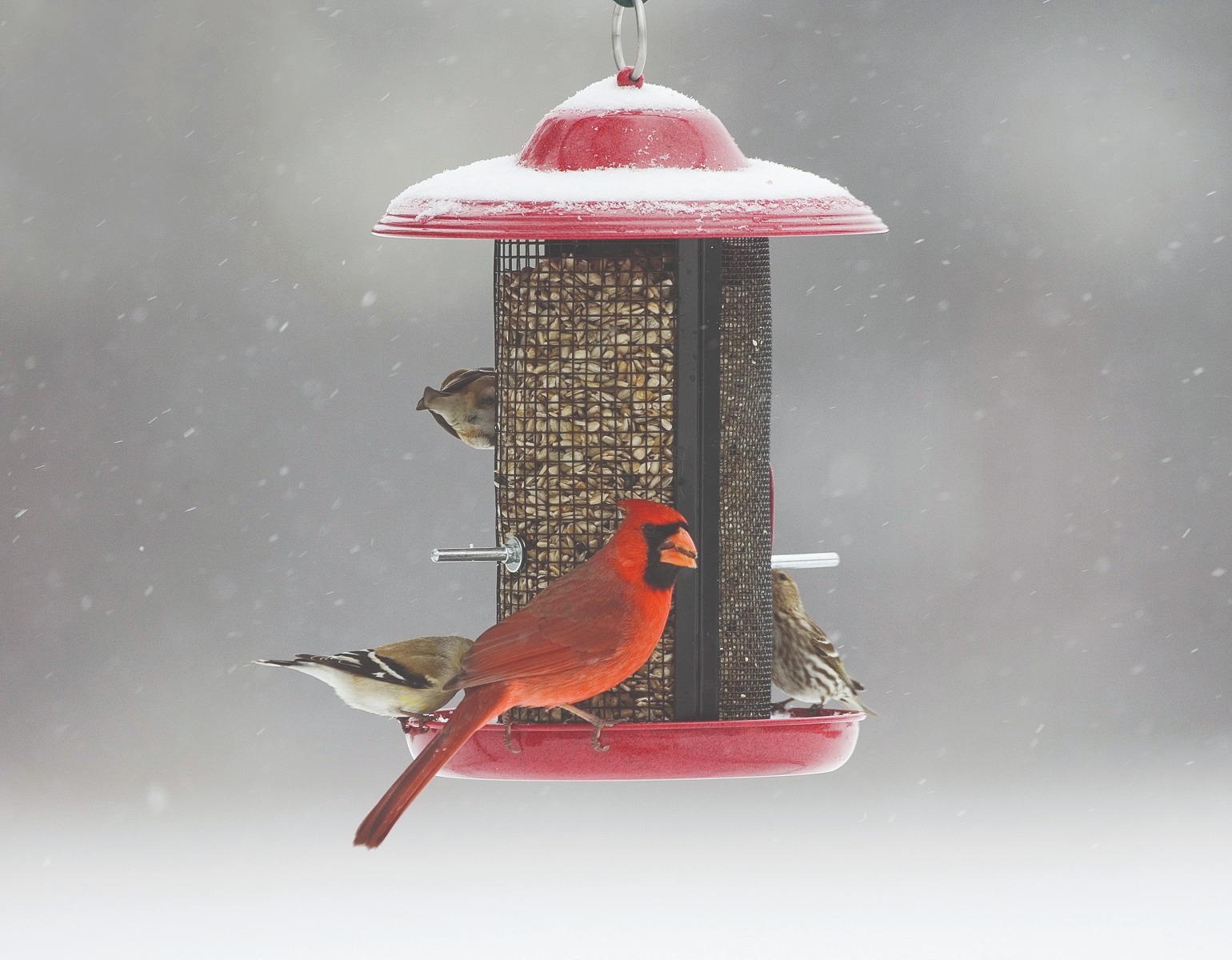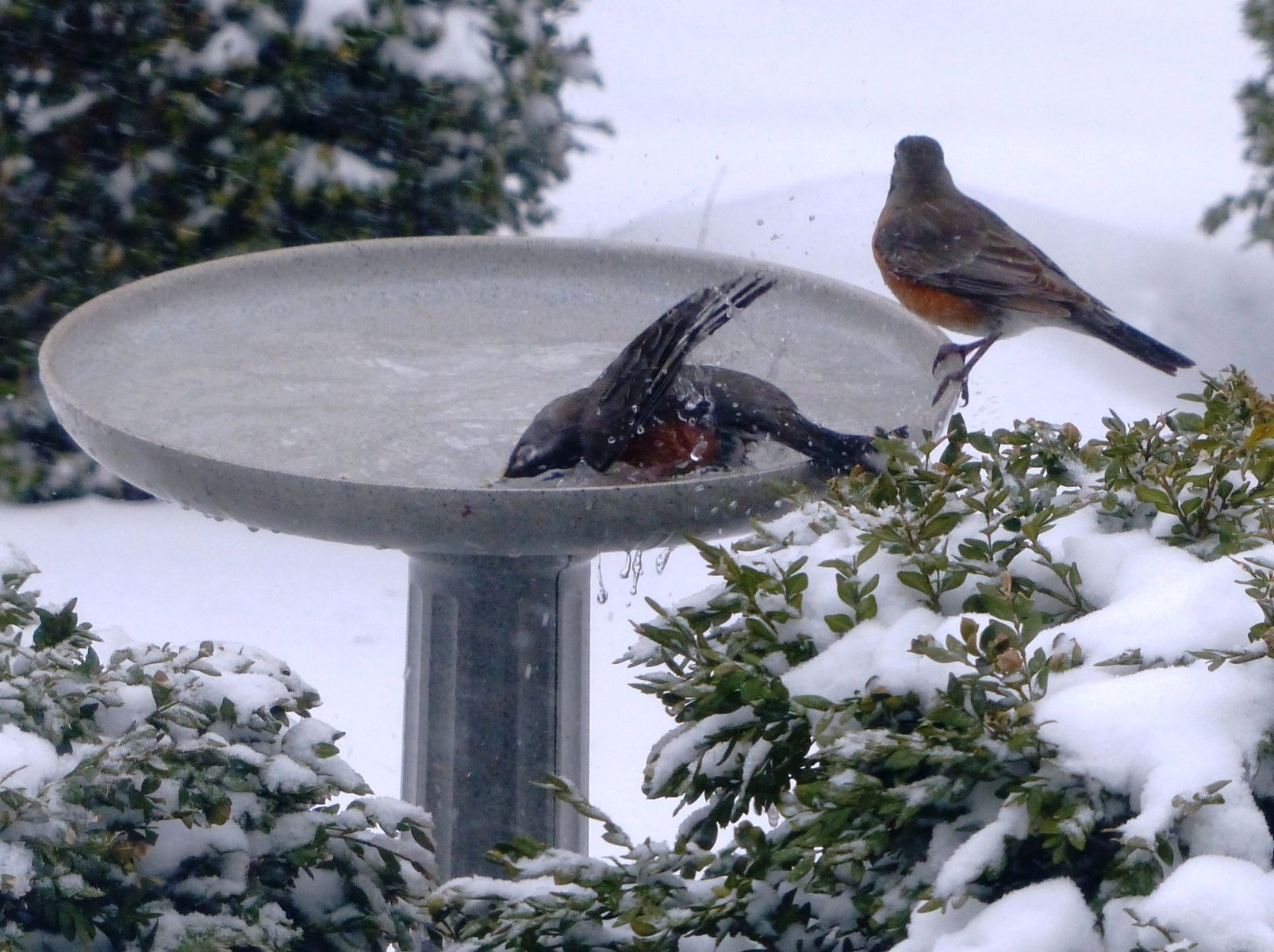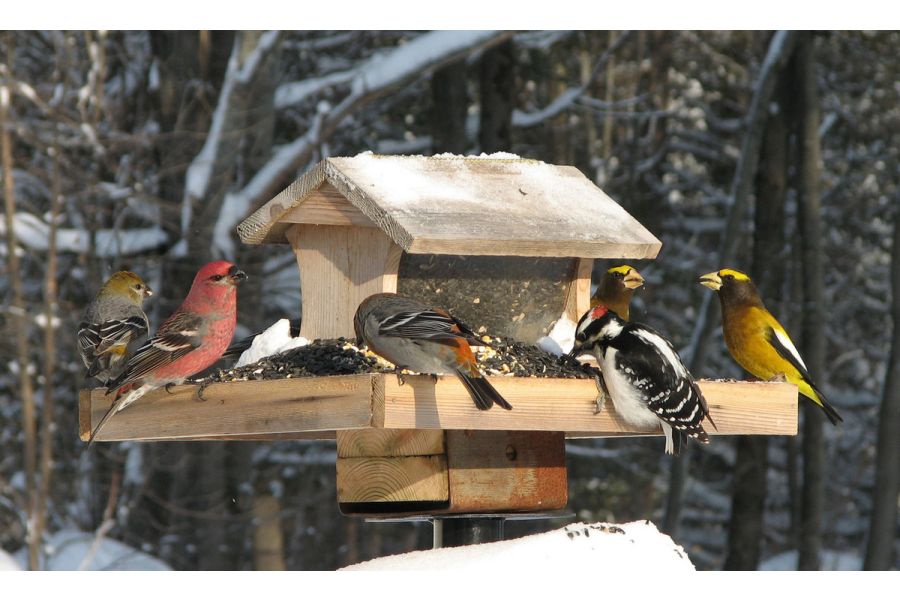Here is some additional information prepared by the National Audubon Science – Audubon At Home staff.
Cleaning bird feeders and birdbaths is a crucial practice in preventing the spread of disease between birds.


If you’ve noticed that some birds are less alert or active, feeding less or cowering on a feeder, you may have a disease problem at your feeders. They may also be reluctant to fly, and their feathers may appear disheveled. Birds affected with Trichomoniasis typically develop sores in their mouths and throats. Unable to swallow, they drop food or water contaminated with Trichomonads (which can live for up to five days in food and several hours in water) that other birds then consume, thus spreading the disease.
With the concern over this and other diseases, including Salmonellosis, Aspergillosis, and Avian Pox, which are easily transmitted at bird feeders and birdbaths, the National Audubon Society recommends paying diligent attention to cleanliness in pursuit of responsible and rewarding bird feeding practices.
Disinfect your feeder and birdbath:
To keep pathogens at bay, use products like Birdbath Cleanse or a combination house and feeder cleanser in conjunction with a scrub brush designed for the job. Brush or wipe it clean and rinse, then refill the birdbath with fresh water. Another great practice is to empty water from your bird bath every day.
Discard old seed and hulls:
When you clean your feeder, get rid of the old seed including what’s fallen on the ground. You could also hang a seed catcher under the feeder. If the ground is bare underneath, install a concrete patio or use paving bricks or flagstone to make clean up easier. Leaving moldy bird seed, bird drippings and organic contaminants is not good for the birds or the ground underneath. In winter, scraping off a few inches of snow will suffice. Supplying good quality seed will also encourage less waste.
Avoid overcrowding:
If possible, provide more than one feeder and spread them out. Crowding only expedites the spread of disease, so give the birds variety and plenty of room.
Clean Hummingbird & Oriole feeders:
Use a nectar feeder cleanser to rinse your feeders containing nectar or sugary jams about once a week. Make sure to rinse well with warm water three times before refilling with sugar solution.
Above information from: http://www.backyardbirdcare.org/step3.html
The experts at Gertens are always available to answer your questions!

